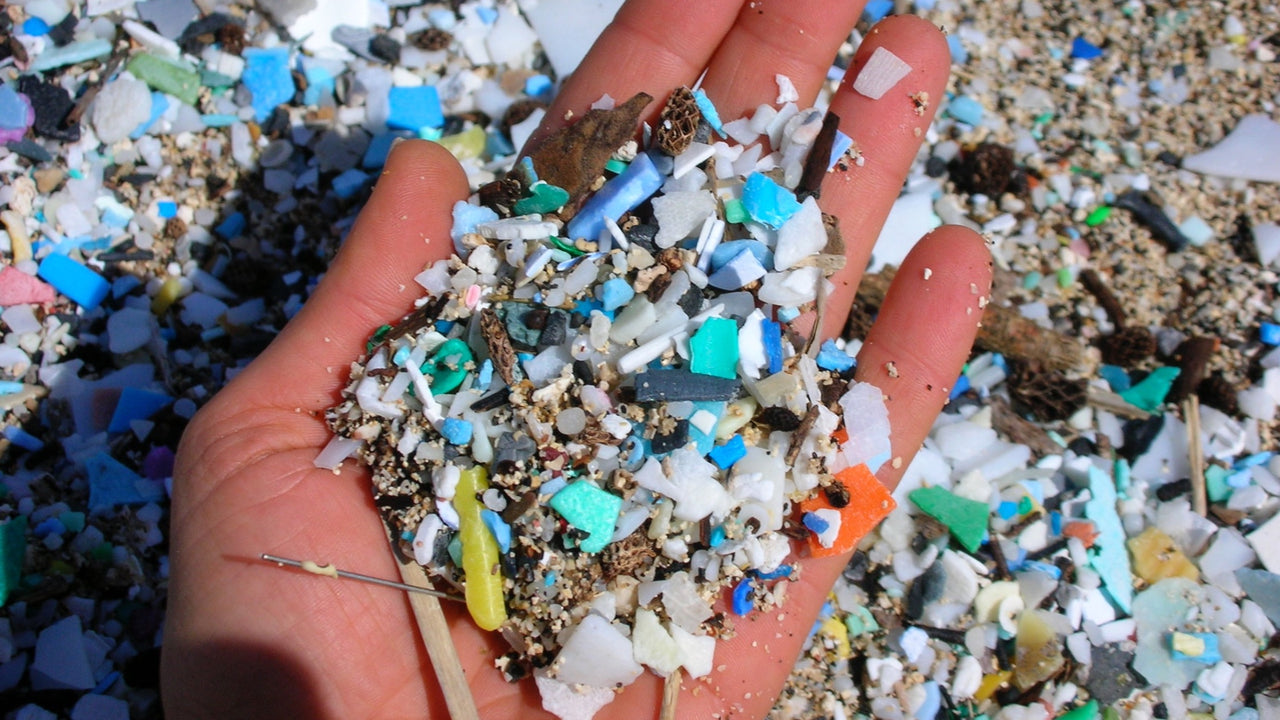
Plastic Smog Alert: 5 Gyres Research Reveals 170 Trillion Plastic Particles are Afloat at Sea
A mythical trash island twice the size of Texas has captured the attention of people around the globe, but the reality is much bleaker. Rather than a floating garbage patch that can be cleaned up and swept away, the truth is that a “plastic smog” of tiny microplastics permeates the ocean.
The 5 Gyres Institute recently published a research paper revealing there are more than 170 trillion plastic particles, weighing approximately 2 million tonnes, afloat in the world’s oceans. That is more than 21,000 pieces of plastic for every human being on the planet.

The study draws on nearly 12,000 samples collected across 40 years of research, including 5 Gyres’ expeditions and data from many of the original leaders in ocean plastic research. Co-authors include Edward Carpenter, who published the first paper on plastic in the ocean in 1972, Robert Day, who first discovered plastic in the North Pacific in 1985, and Charles Moore, who discovered the “Great Pacific Garbage Patch” in 1997.
By evaluating trends of ocean plastic from 1979 to 2019, the authors observe a rapid increase of marine plastic pollution since the millennium and make an urgent call for policy measures focused on source reduction and reuse rather than recycling and cleanup.
“The exponential increase in microplastics across the world’s oceans is a stark warning that we must act now at a global scale, stop focusing on cleanup and recycling, and usher in an age of corporate responsibility for the entire life of the things they make,” said Dr. Marcus Eriksen, Co-Founder of The 5 Gyres Institute. “Cleanup is futile if we continue to produce plastic at the current rate. It's time to address the plastic problem at the source.”
The data offers a historic overview of international policy measures aimed at reducing plastic pollution, showing an increase in ocean plastic pollution at the same time as a decrease in effective laws and agreements. Although there are many factors to consider, the need for legally binding, global agreements cannot be overstated.
We are now at a turning point in history, with negotiations underway for a Global Plastics Treaty. The stakes are high. Trillions of microplastic fragments are swirling in our oceans, throughout the biosphere, and in our bodies. We can’t let the issue continue to run rampant for another 50 years; it’s time for us, as a collective planet, to make a change.
Other articles:
SURF INDUSTRY MEMBERS ASSOCIATION
Working together, our industry and its members are united to protect our industry and oceans.
MISSION STATEMENT
To support the growth of the surf industry through fearless innovation, stoke and sustainability.
VISION
Healthy ocean, healthy industry
